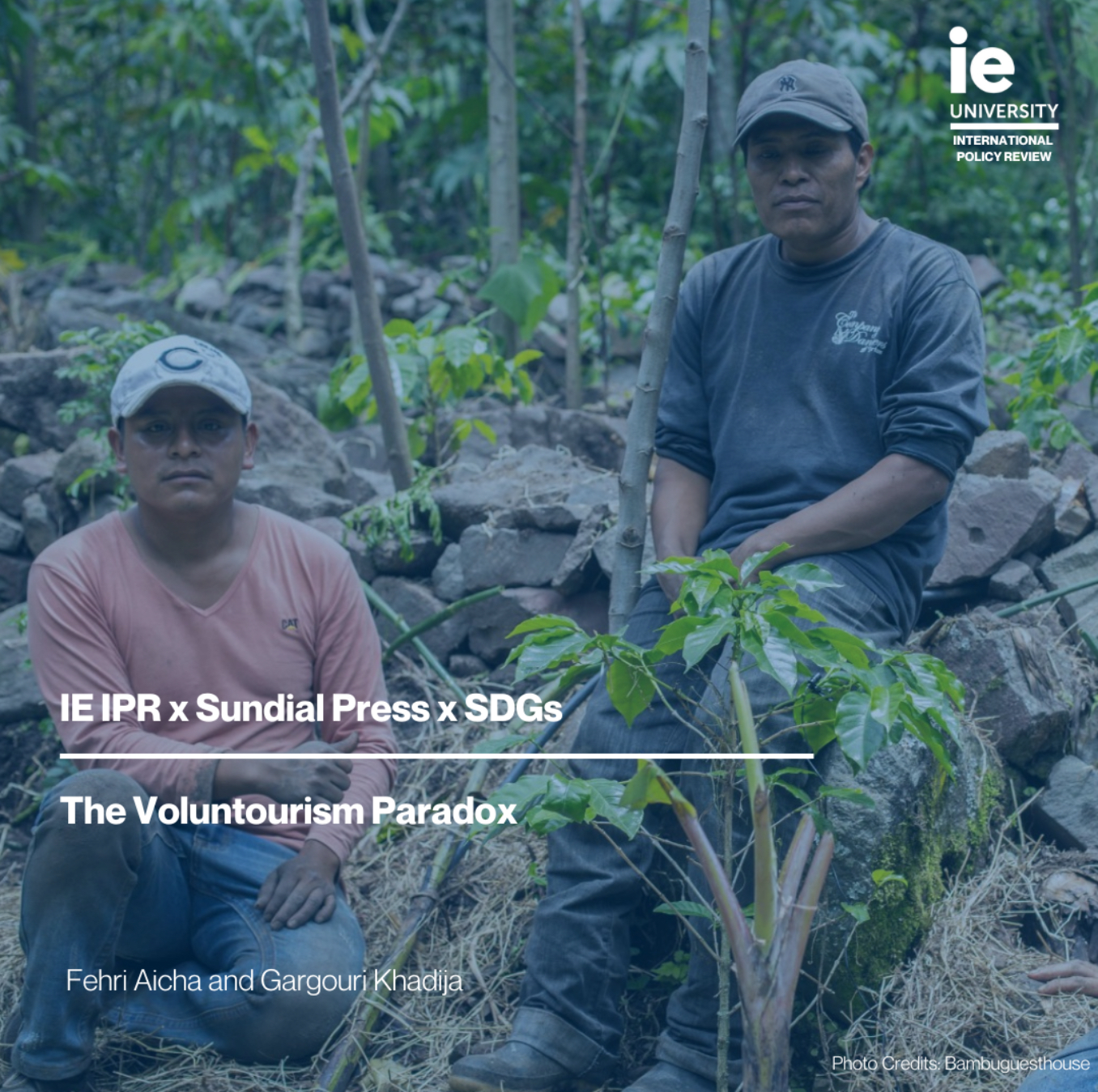
30 Jun The Voluntourism Paradox
Fehri Aicha and Gargouri Khadija
School of Politics, Economics and Global Affairs, IE University, Madrid, Spain
E-mail: afehri.ieu2024@student.ie.edu; kgargouri.ieu2024@student.ie.edu
Abstract
Voluntourism has slowly grown into a billion-dollar global industry, capturing the attention of individuals from the Global North. Its popularity is due to its ability to combine leisure with altruistic based work in communities withlimited resources. Initially framed in terms of poverty alleviation, forming a direct link with the first Sustainable Development Goal (No Poverty), voluntourism has now come under scrutiny for creating dependency, oversimplifying multidimensional social problems, and negating local capacity. This paper aims to analyse this same paradox. Although marketed as a vehicle to alleviate global poverty, voluntourism often reproduces neocolonial practices that fail to recognize structural inequalities. As illustrated by Yi Wang’s research in Mathare, Kenya, it sidelines local voices and histories and prioritizes volunteers’ experiences rather than the needs of the community. This paper argues that voluntourism can still provide sustained and meaningful solutions for individuals and their community, only by stressing the importance of promoting long-term, community-led development, engaging only qualified volunteers, and allowing for ethical practices that encourage local and long-term capacity-building. Changes to marketing practices and evaluation processes must aim to move away from exploitative narratives on poverty, to contribute towards sustainable community poverty reduction.
READ THE FULL ARTICLE HERE
Keywords: V olunteer tourism, SDG, Poverty Alleviation, Neocolonialism, Dependency, Local Agency, Structural
Inequality, Ethical V oluntourism, Capacity-Building, Commodification of Poverty, Sustainable Development.

Sorry, the comment form is closed at this time.